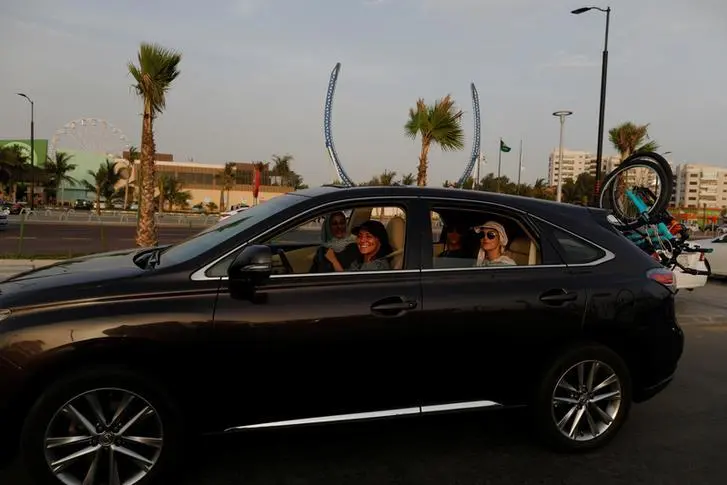PHOTO
RIYADH: Today is the first anniversary of the female driving ban being lifted in Saudi Arabia, and many women are celebrating this day by talking about their journey, their moments of joy and what has changed since they started their engines.
Today in the streets of Riyadh or Jeddah or Dammam, you will find that many women have started to exercise their right to drive, although many feel not as many as expected.
Official numbers have yet to be released, but it is widely believed that female driving schools cannot keep up with the demand. It can take applicants several months to start their lessons at one of the schools, most of which are located within Saudi universities.
Tala Abdulfattah, a 19-year-old student at Princess Noura University (PNU), managed to enrol in driving classes one month before June 24 last year, and it took her three months to get her license.
“It was extremely easy to enroll, probably because I was one of the first groups to register and start,” she explained. “I received the confirmation after two months (after) announcing they have opened their application page. I had to take 30 hours of classes since I had no knowledge of how to drive, and it was fine by me and worth the money and effort, but the downside of it was that each appointment was far from the other, starting with the classes and ending with the test.”
It appears that many applicants faced the same problem of a long wait to start their training. “The enrollment itself was very easy,” said Munerah Al-Ajlan, a standardization analyst in Riyadh public hospital. While she failed to get a confirmation message, it took her six weeks to get her license from the Saudi Driving School at Princess Nourah University. “It was the technical issues and the long waiting periods that were difficult.”
But she said it was worth the wait. “The last year has been very empowering; I could sense my independence every time I open the driver’s car door,” Al-Ajlan said.
Deem Al-Dekhayel, a project communication manager in Riyadh, said she found that the Saudi Driving School and traffic department were well organized once the applicants started their training. It took her a month to get her license from the time she received the message to take the placement test. “It took longer than I expected, but once that process began, everything was professional and clear.”
Al-Dekhayel has found that having a license is a game-changer. “Financially I feel like we are better without a personal driver. In my situation, not only I had to pay my driver his monthly salary and benefits, but also I had to provide accommodation for him which was difficult.”
A lot of female drivers expressed how amazing last year was for them and how much support they got in the streets. Al-Ajlan said: “I feel in control when I get in my car.”
Munirah Nujayman, an English instructor at PNU, already had her license from abroad, so she switched it easily a month after June 24. “It took me one day to replace it with a national one,” she said.
Nujayman had her reservations about driving in her home country. “Even though I have been driving for four years abroad, I was not sure about getting my license and driving here in my country. It felt weird, and I thought that I may not be safe out there. However, after a period of time riding with Uber and comparing its cost with having my own car, I decided to go for a license and break that fear. None of my fears were true. Everything is normal, and I haven’t faced any issues except for the horrible traffic jam during the rush hour.”
In any city, roads can be overwhelming for new drivers regardless of their gender. “It is not easy to drive in a big city like Riyadh, especially with the changing road detours for the Metro and during the rush hours,” Al-Dekhayel said. “Many drivers are not following the rules, which makes it difficult to expect their movement around you. Drivers usually act as if they are in a hurry and expect you to move aside for them.”
Al-Ajlan, on the other hand, has been encouraged by how helpful other drivers can be. “Other drivers usually love to help (me) parking, even when it is not needed.”
Despite the slow start, seeing female drivers on the road is certainly more common a year later, especially in major cities. Al-Ajlan said female drivers take up nearly one-third of the parking spots at her workplace.
“Now every time I go out I see one or two females on the road, I still get excited and feel happy when I see a female driving,” Tala said.
Copyright: Arab News © 2019 All rights reserved. Provided by SyndiGate Media Inc. (Syndigate.info).





















